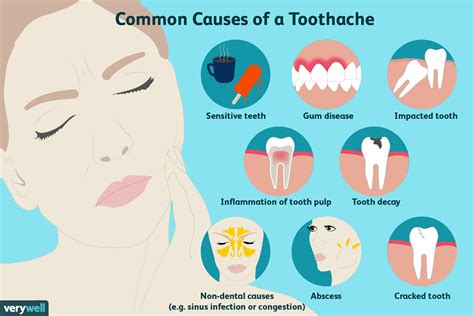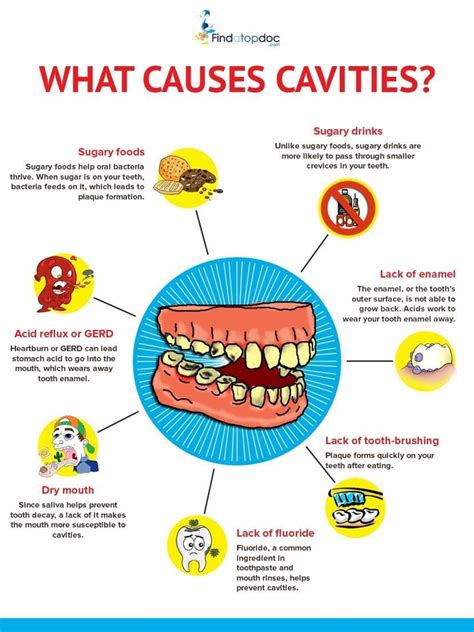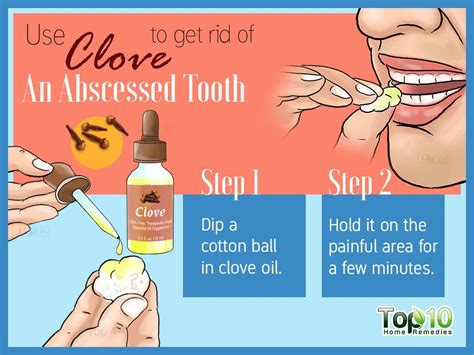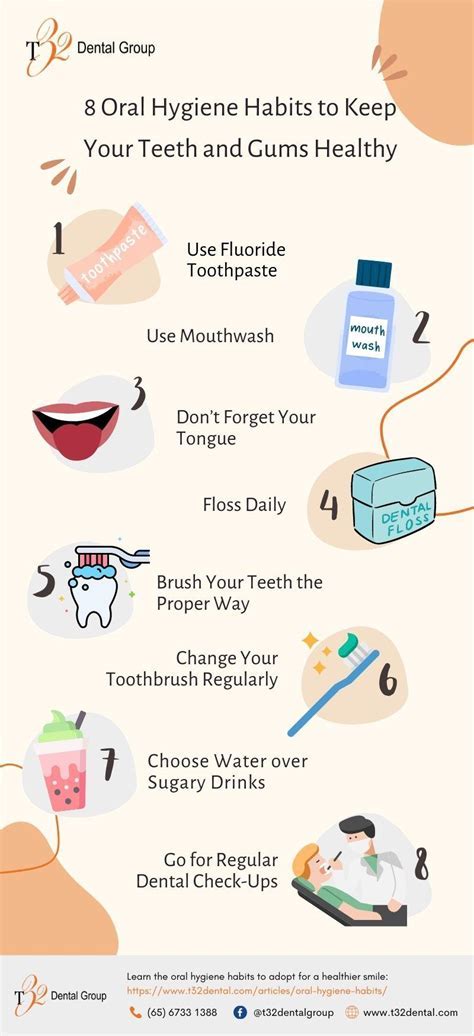Unpleasant sensations in the oral cavity can manifest in a variety of ways, causing discomfort and sometimes even interfering with daily activities. These distressing symptoms may arise due to a multitude of factors, each with its own distinct characteristics and specific treatment methods. By gaining insight into the root causes and available remedies, individuals can take proactive measures to alleviate tooth pain and address infected gum conditions effectively.
A key contributor to dental distress is the accumulation of harmful bacteria within the oral environment. These microscopic organisms can infiltrate the enamel, leading to the development of cavities and subsequent tooth sensitivity. Alongside this, gum infections may emerge, with symptoms ranging from mild swelling and tenderness to more severe cases of persistent bleeding and pus formation. Identifying the precise triggers of these conditions is crucial, as it enables targeted intervention and promotes effective management strategies.
Poor oral hygiene stands as a significant factor in the onset of toothaches and gum infections. Neglecting routine dental care, such as regular brushing and flossing, can create an environment ripe for bacterial growth and subsequent decay. Furthermore, dietary choices heavily influence oral health, as consuming excessive sugary or acidic foods and beverages can erode tooth enamel and exacerbate gum inflammation. Understanding the impact of these lifestyle habits is vital in formulating appropriate treatment plans and adopting preventative measures to combat dental discomfort.
Fortunately, numerous approaches exist to mitigate tooth pain and resolve infected gum issues. Non-invasive interventions, such as professional cleanings and dental scaling, serve as effective means to eliminate plaque buildup and prevent further infection. In more advanced cases, root canal therapy or tooth extraction may be necessary to alleviate persistent discomfort and restore oral health. Additionally, individuals can take proactive steps to maintain good oral hygiene practices, including regular dental check-ups and the implementation of daily home care routines. By embracing a holistic approach encompassing both professional intervention and personal responsibility, individuals can conquer dental distress and achieve optimal oral well-being.
Understanding Tooth Pain: Common Causes and Symptoms

Tooth pain can be caused by a variety of factors and can manifest in different ways. Understanding the common causes and recognizing the symptoms of tooth pain is important for proper diagnosis and treatment.
There are several factors that can lead to tooth pain, including dental decay, gum disease, dental trauma, and teeth grinding. Dental decay occurs when bacteria in the mouth produce acids that erode the tooth enamel, leading to cavities. Gum disease, also known as periodontal disease, is caused by the buildup of plaque and tartar on the gums, resulting in inflammation and infection. Dental trauma, such as a fracture or chip in the tooth, can cause pain and sensitivity. Teeth grinding, or bruxism, can also cause tooth pain due to excessive pressure and wear on the teeth.
The symptoms of tooth pain may vary depending on the underlying cause. Common symptoms include toothache, sensitivity to hot or cold temperatures, pain when biting or chewing, swollen gums, and bad breath. Additionally, tooth pain can sometimes radiate to other areas of the face, causing headaches or earaches.
It is important to consult a dentist if you experience persistent tooth pain or if the pain is severe. A dentist will perform a thorough examination, which may include dental X-rays and a dental exam, to determine the cause of the pain and recommend appropriate treatment. Treatment options for tooth pain may include dental fillings, root canal therapy, antibiotics, or tooth extraction, depending on the severity and underlying cause of the pain.
- Common causes of tooth pain include dental decay, gum disease, dental trauma, and teeth grinding.
- Symptoms of tooth pain may include toothache, sensitivity, pain while biting or chewing, swollen gums, and bad breath.
- Consulting a dentist is important for proper diagnosis and treatment of tooth pain.
- Treatment options for tooth pain may vary depending on the cause and severity of the pain.
The Link Between Toothache and Infected Gums: Essential Information
In this section, we will explore the essential information regarding the connection between dental discomfort and the presence of infection in the gums. We will delve into the relationship between tooth pain and infected gums, providing insights into the underlying causes and potential treatments to alleviate these symptoms. By understanding this link, individuals can gain the knowledge they need to manage and improve their oral health effectively.
Key Points:
|
Causes of Tooth Pain: Dental Decay and Cavities

When it comes to the unpleasant sensation often experienced in the mouth, a variety of factors can contribute to the discomfort. One of the significant reasons behind tooth pain is dental decay and the formation of cavities.
Also known as dental caries, dental decay occurs when the hard tissues of the teeth, such as enamel and dentin, become damaged or eroded due to the presence of harmful bacteria in the oral cavity. These bacteria thrive on the sugars and carbohydrates present in the foods we consume, producing acids that gradually wear away the tooth structure over time.
- The accumulation of plaque, a sticky film containing bacteria, is a common cause of dental decay. If not removed through regular and proper oral hygiene practices like brushing and flossing, plaque can lead to the formation of cavities.
- A diet high in sugary and acidic foods and beverages can increase the risk of dental decay. The frequent consumption of these substances provides an ideal environment for the bacteria to thrive and attack the teeth.
- Poor oral hygiene habits, such as irregular brushing and flossing, can leave plaque and food particles on the teeth for an extended period. This allows the bacteria to feed on the debris and produce harmful acids, leading to tooth decay.
- Insufficient fluoride intake can also contribute to the development of cavities. Fluoride helps to strengthen tooth enamel and make it more resistant to acid attacks. Without enough fluoride, the teeth are more susceptible to dental decay.
It is important to be aware of the causes of dental decay and cavities as they can be prevented through proper oral care and a healthy diet. Regular dental check-ups and cleanings, along with good dental hygiene practices, can go a long way in preserving oral health and reducing the risk of tooth pain.
Gum Disease and Tooth Discomfort: Exploring the Correlation
When it comes to our oral health, it is essential to understand the intricate relationship between gum disease and tooth pain. In this section, we delve into the connection between these two issues and shed light on the significant impact they can have on overall dental well-being.
Exploring the Origins of Gum Disease:
Gum disease, also known as periodontal disease, is a common condition that affects the gums and supporting structures of the teeth. It arises from an inflammatory response in the gums, resulting in redness, swelling, and potential bleeding. The development of gum disease can be attributed to various factors, including poor oral hygiene practices, genetic predisposition, hormonal changes, and certain medications.
Unveiling the Root Causes of Tooth Discomfort:
Tooth discomfort can manifest in various forms, such as sensitivity to hot or cold stimuli, throbbing pain, or sharp discomfort while biting or chewing. While gum disease is not the sole cause of tooth pain, it is a leading contributor. As gum disease progresses, the gum tissue recedes, exposing the sensitive roots of the teeth. This exposure can lead to heightened sensitivity and discomfort when consuming hot or cold foods and beverages.
The Vicious Cycle:
The relationship between gum disease and tooth discomfort is often cyclical. As gum disease advances, it can cause tooth pain, and in turn, tooth pain can exacerbate the progression of gum disease. The discomfort and sensitivity experienced due to underlying gum disease may lead to difficulties in practicing proper oral hygiene, further contributing to the deterioration of gum health.
The Importance of Early Detection and Treatment:
Early detection and treatment play a vital role in mitigating the impact of gum disease on tooth discomfort. Regular dental check-ups, professional cleanings, and maintaining consistent oral hygiene habits are crucial in preventing or managing gum disease. Additionally, addressing tooth discomfort promptly can help prevent further damage and potential tooth loss.
In conclusion, understanding the intricate connection between gum disease and tooth pain is crucial for maintaining optimal oral health. By recognizing the various causes and seeking timely treatment, individuals can mitigate the discomfort, prevent further complications, and preserve their beautiful smiles.
Relieving Tooth Pain at Home: Natural Remedies and Helpful Tips

In this section, we will explore various natural remedies and helpful tips that can assist in providing relief for tooth pain in the comfort of your own home. Discover effective methods to alleviate discomfort and ease the symptoms associated with oral health issues without relying solely on professional treatment.
1. Apply a Cold Compress: When experiencing tooth pain, applying a cold compress to the affected area can help numb the area and reduce inflammation. Wrap a bag of ice or a frozen pack in a thin cloth and gently place it against your cheek or jaw, near the painful tooth.
2. Rinse with Saltwater: A simple saltwater rinse can alleviate tooth pain by reducing inflammation and killing bacteria. Dissolve half a teaspoon of salt in a glass of warm water, swish it around your mouth, focusing on the affected area, and then spit it out.
3. Use Clove Oil: Clove oil is a traditional remedy for tooth pain due to its natural analgesic properties. Soak a cotton ball or cotton swab in clove oil and gently apply it to the painful tooth or gum area for temporary relief.
4. Herbal Teas: Drinking herbal teas like chamomile, peppermint, or ginger can have a soothing effect on tooth pain. These teas can help reduce inflammation, alleviate discomfort, and promote relaxation.
5. Maintain Proper Oral Hygiene: Practicing good oral hygiene is essential in preventing tooth pain and maintaining overall oral health. Brush your teeth at least twice a day, floss daily, and use an antibacterial mouthwash to keep your mouth clean and free from bacteria.
6. Avoid Trigger Foods and Drinks: Certain foods and drinks can worsen tooth pain or increase sensitivity. Limit your consumption of hot, cold, sweet, or acidic foods and beverages to prevent further discomfort.
7. Over-the-Counter Pain Relief: Over-the-counter pain relievers such as ibuprofen or acetaminophen can provide temporary relief from tooth pain. Follow the recommended dosage instructions and consult with a healthcare professional if necessary.
8. Stress Reduction Techniques: Stress can contribute to tooth pain and exacerbate existing oral health conditions. Engaging in stress-reduction techniques such as meditation, deep breathing exercises, or yoga can help alleviate pain and promote overall well-being.
Remember, while these remedies and tips can provide temporary relief, it is crucial to consult a dentist for a proper diagnosis and professional treatment. Seeking dental care is essential to address the underlying causes of tooth pain and ensure long-term oral health.
Professional Treatments for Tooth Discomfort: What to Anticipate
When experiencing oral discomfort that goes beyond regular toothaches, seeking professional treatment becomes necessary. Dental specialists provide various effective methods to alleviate tooth discomfort and restore oral health. This section explores the different professional treatments available for individuals experiencing tooth distress and provides insight into what can be expected during these procedures.
- Root Canal Therapy: Also known as endodontic treatment, this procedure involves the removal of infected or inflamed pulp from the tooth, followed by cleaning, disinfecting, and sealing the root canals. Root canal therapy aims to alleviate severe pain and save the tooth from extraction.
- Dental Fillings: Commonly used to treat cavities, dental fillings involve removing the decayed portion of the tooth and filling the void with a durable material such as composite resin or amalgam. This procedure aims to restore the tooth's structure and function and relieve any discomfort caused by decay.
- Tooth Extraction: In cases where a tooth is severely decayed, damaged, or infected beyond repair, a dental extraction may be necessary. During this procedure, the tooth is carefully removed from its socket under local anesthesia. Although extraction may sound intimidating, it is often a relatively straightforward and painless process.
- Dental Crowns: Sometimes, tooth pain may result from a cracked or weakened tooth. In such cases, a dental crown can be an effective solution. A crown is a custom-made cap that covers the entire tooth, providing strength, stability, and protection. Getting a dental crown typically involves multiple visits to the dentist.
- Gum Disease Treatment: If gum infection or inflammation is the cause of tooth discomfort, professional treatment options such as scaling and root planing may be recommended. These procedures involve deep cleaning of the gum pockets to remove plaque and tartar, allowing the gums to heal and reducing tooth pain.
Before starting any professional dental treatment, it is essential to consult with a dental professional who will thoroughly examine the oral condition, discuss the available treatment options, and explain the procedure, expected outcomes, and aftercare recommendations. By seeking professional care promptly, individuals experiencing tooth discomfort can receive the appropriate treatment to alleviate pain and ensure long-lasting oral health.
Preventing Tooth Pain and Infected Gums: Oral Hygiene Best Practices

Ensuring good oral hygiene is crucial in preventing tooth pain and the development of infected gums. By following a few simple best practices, you can maintain a healthy mouth and avoid these unpleasant dental issues.
- Brushing Your Teeth: Make it a habit to brush your teeth at least twice a day using a soft-bristled toothbrush. This helps to remove plaque and bacteria that can lead to tooth decay and gum infections.
- Flossing Regularly: Flossing is essential for cleaning the areas between your teeth where a toothbrush cannot reach. By removing food particles and plaque from these areas, you can prevent the development of gum disease and tooth pain.
- Using Mouthwash: Incorporate an antimicrobial mouthwash into your daily oral care routine. Mouthwash helps to kill bacteria and reduce the risk of gum infections. Look for a mouthwash that is specifically designed to combat plaque and gingivitis.
- Chewing Sugar-Free Gum: Chewing sugar-free gum stimulates saliva production, which helps to wash away bacteria and neutralize acids in the mouth. This can contribute to the prevention of tooth decay and gum disease.
- Visiting Your Dentist: Regular dental check-ups and professional cleanings are essential for maintaining good oral health. Your dentist can detect any early signs of tooth decay or gum disease, allowing for prompt treatment and prevention of further complications.
- Following a Healthy Diet: A balanced diet that is rich in nutrients, including calcium and vitamin C, promotes strong teeth and gums. Avoid excessive sugar consumption, as it can lead to tooth decay and gum problems.
By incorporating these oral hygiene best practices into your daily routine, you can minimize the risk of tooth pain and infected gums. Remember, prevention is key when it comes to maintaining optimal dental health.
The Role of Diet in Maintaining Good Oral Health and Preventing Toothache
Proper nutrition plays a vital role in promoting good oral health and preventing the discomfort of tooth pain. The food we consume not only provides essential nutrients to our bodies but also contributes to the strength and health of our teeth and gums. By making wise dietary choices and adopting good eating habits, individuals can effectively prevent tooth pain and promote optimal oral health.
Choosing nutrient-rich foods
It is important to consume a balanced diet that includes a variety of nutrient-rich foods. A diet high in fruits, vegetables, whole grains, lean proteins, and low-fat dairy products provides the body with essential vitamins and minerals needed for healthy teeth and gums. Vitamins such as vitamin C, vitamin D, and calcium are especially beneficial for maintaining strong teeth and preventing gum diseases. Including foods like oranges, milk, yogurt, leafy greens, and fish in your meals can greatly contribute to your oral health.
Avoiding sugary and acidic foods
Sugary and acidic foods can have detrimental effects on oral health, leading to tooth decay and gum diseases. Consuming excessive amounts of sugary foods, such as candies, sodas, and cakes, can increase the risk of cavities and toothache. Acidic foods, such as citrus fruits and carbonated beverages, can erode the tooth enamel over time, making teeth more vulnerable to pain and sensitivity. It is important to limit the intake of these foods and opt for healthier alternatives.
Drinking plenty of water
Water is not only essential for overall health but also plays a crucial role in maintaining good oral health. Drinking an adequate amount of water helps in the production of saliva, which aids in the natural cleaning of the mouth and neutralizes harmful acids produced by bacteria. Additionally, water helps to wash away food particles and debris, reducing the risk of tooth decay and gum infections. Therefore, staying hydrated by drinking plenty of water throughout the day is vital for maintaining a healthy mouth.
Incorporating dental-friendly habits
In addition to a balanced diet, adopting dental-friendly habits can further contribute to maintaining good oral health. Regular brushing and flossing, using fluoride toothpaste, and visiting the dentist for routine check-ups and cleanings are all essential practices for preventing tooth pain and keeping gums healthy. These habits, combined with a nutritious diet, create a strong foundation for maintaining good oral health and preventing dental problems.
In conclusion, a well-balanced diet and proper nutrition are fundamental for maintaining good oral health and preventing tooth pain. By making conscious choices to consume nutrient-rich foods, avoiding sugary and acidic foods, drinking plenty of water, and incorporating dental-friendly habits, individuals can significantly reduce the risk of dental issues and enjoy a pain-free, healthy mouth.
When to Seek Professional Help: Signs that Your Tooth Pain Needs Dental Attention

Recognizing the Urgency
If you are experiencing severe discomfort in your oral cavity, it's essential to understand the indications that suggest immediate dental assistance is necessary. Ignoring persistent tooth pain may lead to prolonged suffering and potential complications. By familiarizing yourself with the warning signs that necessitate professional intervention, you can address the underlying issues promptly and restore your oral health.
FAQ
What causes tooth pain?
Tooth pain can be caused by several factors such as dental cavities, tooth decay, gum infections, cracked or fractured teeth, teeth grinding, or abscessed teeth. It is important to visit a dentist to determine the exact cause of the tooth pain.
How can infected gums be treated?
The treatment for infected gums, also known as gum disease or gingivitis, depends on the severity of the condition. In mild cases, proper oral hygiene practices such as regular brushing, flossing, and using mouthwash can help. More severe cases may require professional dental cleaning, antibiotics, or even surgery to remove the infection and restore gum health.
Is tooth pain a sign of a serious dental condition?
Tooth pain should never be ignored as it can be a sign of a serious dental condition. It is important to seek professional dental care to diagnose and treat the underlying cause of the tooth pain. Ignoring tooth pain can lead to further complications and potential tooth loss.




